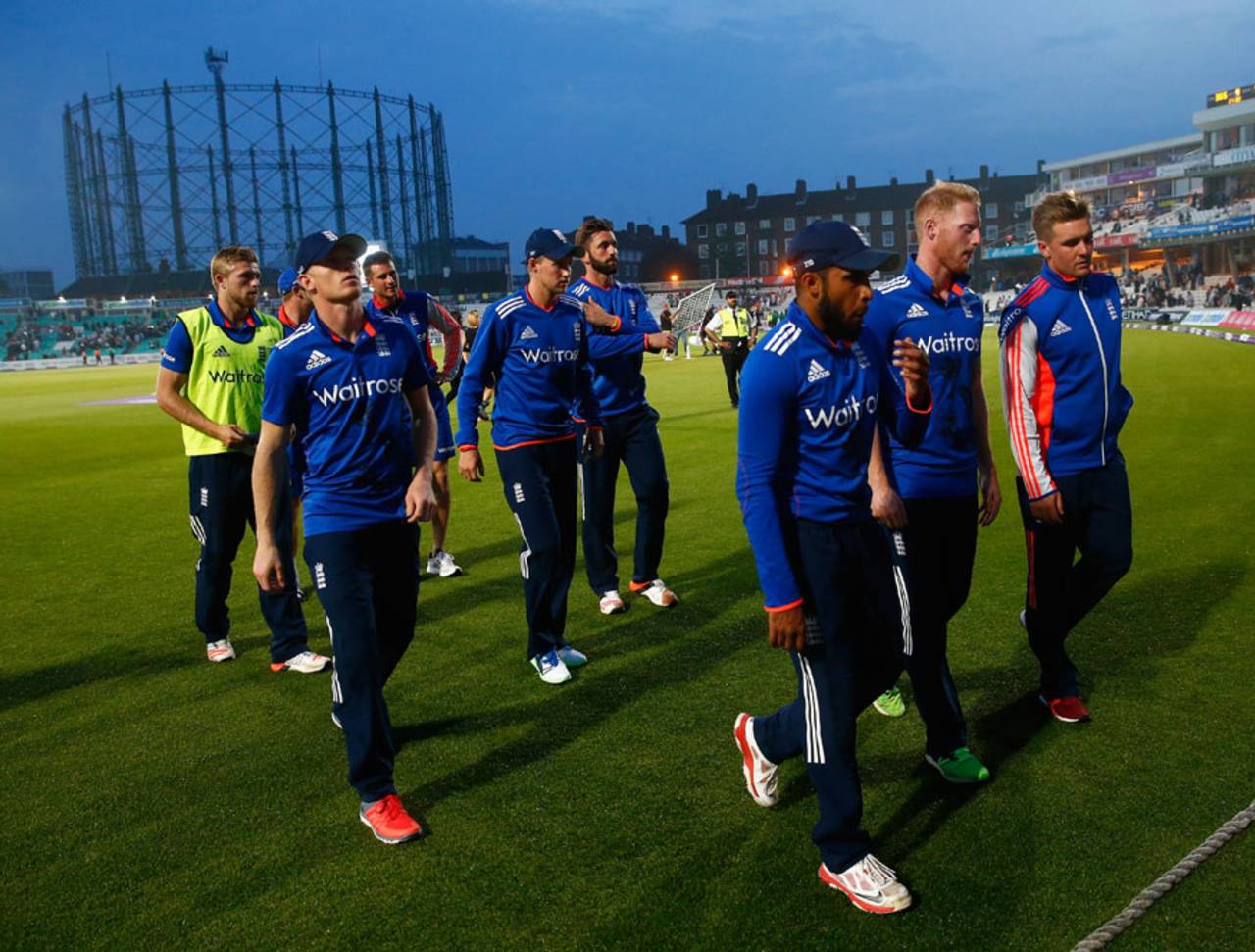"Resurgent", "buoyant", even "born again", that phrase of spiritual renewal, has been used to describe the all-new winning England team after their
ODI series victory against New Zealand. Diehard three lions fans, curmudgeonly sceptics when it comes to the national side - who
don't always want England to win - discovered a spring in their step after Eoin Morgan and his youthful charges finally sparked up the cricket summer.
So when
Stuart Broad,
Ian Bell,
James Anderson and
Alastair Cook walk back into the England changing room for the first Ashes Test, will it be like the Four Horsemen of the Apocalypse casting their long and doom-laden shadows over the beaming foals? As much as I love Jimmy and Broad bowling well, and admire the gnarly comeback of Captain Cook after his one-day demotion and his barren run of form - sorry Bell, despite your technical perfections, I've never really connected with you as a player, despite the way that you connect with those textbook cover drives - I do wonder if their return may well kill the winning buzz.
And reading what Anderson said to Jack Pitt-Brooke in the Independent, I wonder if he feels this too: "The guys who have come in have been a breath of fresh air," he admits. "The only way that people come into the side and play like they have done in this one-day series, or in the Test series before, is if they are relaxed and they are comfortable in the environment."
If Anderson, and possibly Broad, Cook and Bell, feel like the guests who have left a morbid party only to return later to find revellers roaring with laughter and dancing on the tables - please link that metaphor to Alex Hales, Sam Billings and Jos Buttler's innovative batting - then they might reconsider their place in the changing room.
However, when is the right time to leave the kids alone to enjoy themselves? Sure those "buoyant" youngsters will have more fun while mum and dad aren't there, but when that table collapses, and someone passes out on the bathroom floor after raiding the liquor cabinet, and then a mob of Australian fast bowlers turn up and gatecrash the party, that's when the veterans and - yes, I'm going to use the cliché - "father figures" are needed. When the going gets tough and the Australian quicks have ripped apart the England batting, a solid Bell or an obdurate Cook will comfort those wet-behind-the-ear boys who are suddenly crying that they want to go home.
Even at the amateur level one can see the modern England influence on the club cricketer. All summer I seem to have been watching cricket balls disappearing over boundary ropes
Team spirit is oddly undefinable, yet a vital part of any group sport. Entrenched players, the worn-out pros who have long forgotten how to actually enjoy the game, can both hinder and help that ethereal dressing-room atmosphere. At 32, Anderson acknowledges he is at the upper end of the age divide, but also knows that his role as mentor to the youngsters is a key to Ashes success. "The important role of the senior guys is to try to get those lads just to relax."
Encouraging and maintaining the zest of this new era will shape a generation of players. Even at the amateur level one can see the modern England influence on the club cricketer. All summer I seem to have been watching cricket balls disappearing over boundary ropes. There is a swagger at the crease to the previously diffident batsman. A smash-it-while-I-can cavalier attack seems to now be commonplace - especially from the unencumbered teenagers, the kids coached to hit that length ball rather than put bat and pad together and block.
This approach to batting could be more to do with trendsetters Brendan McCullum and AB de Villiers than Paul Farbrace - and now Trevor Bayliss. Either way, it's fashioned from a new-found freedom in the national set-up, a freedom that wasn't on offer when I was growing up as a cricketer. My coach - and a fine coach for the times - would send us on a lap around the pitch if we slogged in the nets. When I started playing men's cricket at 14 years old, I was usually thrown in at No. 11, and usually expected to be dead-batting out a draw at the bitter end. Rollickings from captains and coaches for losing wickets playing shots were commonplace. All of it couldn't be further from what the injured Jos Buttler said in his Sky interview at the England-New Zealand T20 at Old Trafford, laughing that it was as if the team had to try and be all out by the end of the innings.
Alas, a devil-may-care approach might be an exciting roll of the dice in limited-overs cricket, but an Ashes series is wholly different contest. A war of pace, sledging, crowds, character, press and cricket. It will be fascinating to see how this blend of ebullient youth and battle-hardened veterans will fare - both on the pitch and in the changing room.
Nicholas Hogg is a co-founder of the Authors Cricket Club. His third novel, TOKYO, is out now. @nicholas_hogg
